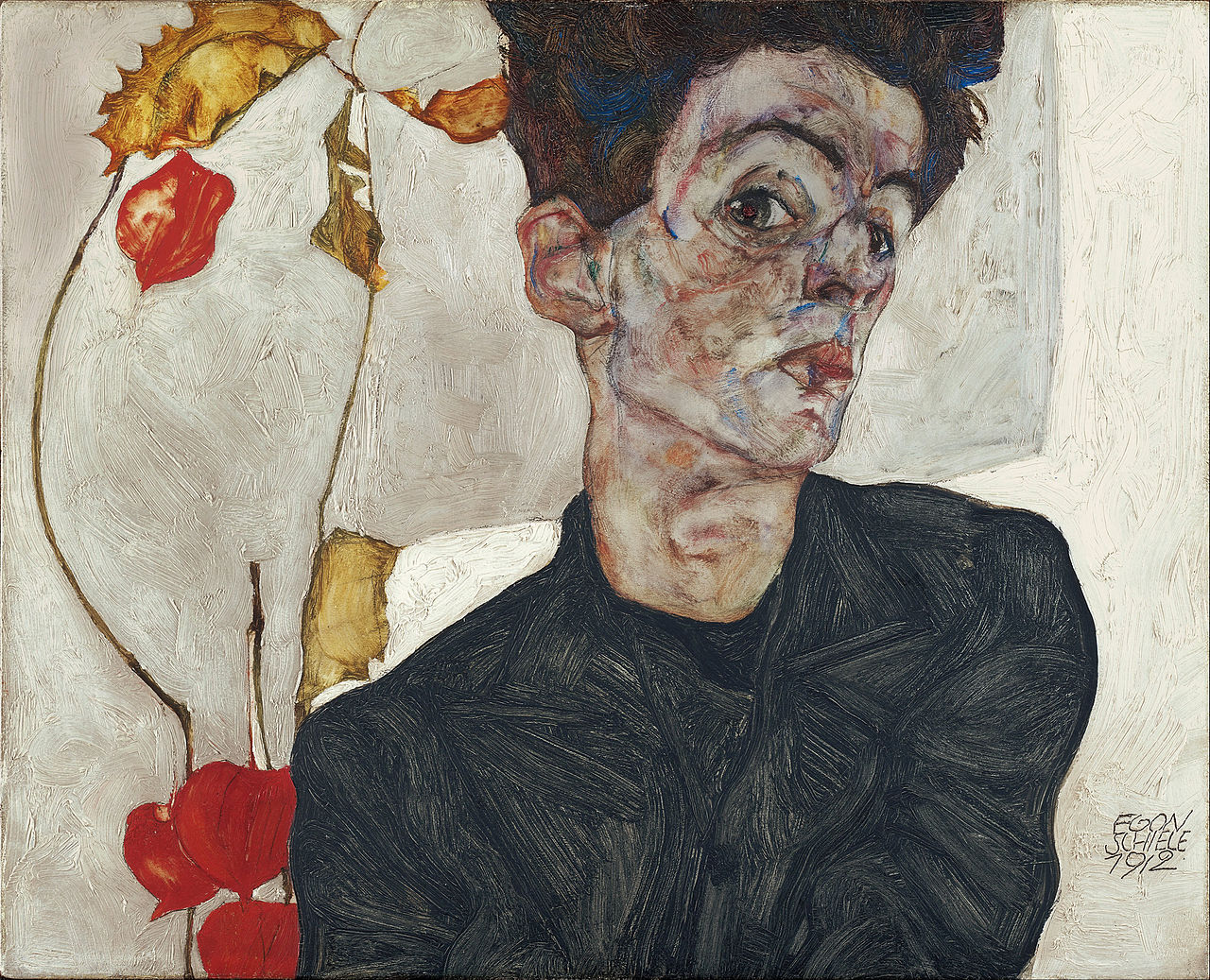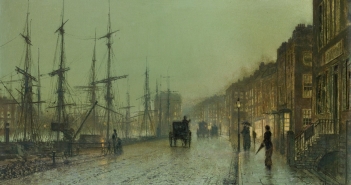Levi ‘Lev’ Driscoll, wrote the odd sentence or two when creativity revealed itself to him. This month, albeit at a snail’s pace, he’d immersed himself in Frank Herbert’s classic, Dune. How he relished reading the exploits of Paul Atreides and his mother Jessica, deep into the vast inhospitable desert on Planet Arrkais. Lev marvelled at how the novel’s plot had been devised to move the narrative forward – like the colossal sandworms burrowing at its centre, the sci-fi story tunnelled and lunged into a distant future, simply by devouring and expelling sand.
At age forty-five, Lev’s daily garb consisted of jeans and a plain t-shirt. When he was in the mood, he donned Cherry Red Doc Martins, or might dye his lank auburn locks an astonishing Hulk Green. In younger days, he’d sported the facial accoutrement of two studs and a nose ring. A soul-patch still featured below his lower-lip. He listened to Wayne Shorter, Van Morrison, and The Blue Room Jazz Sessions. Some Punk. A recent listen was that band called Idles. Lev watched what he ate, adding pomegranate seeds and blueberries to his a.m. porridge. A breakfast which steeled him for the day.
This morning’s thought had already been jotted down on a writing-pad, where he sat in the breakfast nook of his small Rathfarnham apartment, Good literary fiction is a desert citadel visited only a few times in one’s life. Breeching those stone walls brings with it a knowledge and invigorating power all of its own.
Turning on the radio he heard writer Colm Tóbín, talking about Irish writers’ fathers and their lives, whereupon Lev thought, Jazyhus, yer man Colm Tóbín’s voice sounds like it went off to Grasse in France for an apprenticeship in perfumery. Like it rolled in a field of lavender and chamomile!
Lev left his flat, caught the No.16 bus into town and went dandering about in Dublin city centre. He mooched for a few deals in Dunnes before deciding to walk the 8km home. It was late autumn and the sun was bright but the air very cold. Wind-raked dead leaves heaped at the sides of pavements with their muted browns, and October yellows.
Quiet were the white swans of Portobello, and their amorous dalliances on the Grand Canal went unnoticed by busy Dubliners in the early afternoon sunshine. He walked south of the city centre, into Rathmines and regarded a church’s chiselled proclamation, SUB. INVOC. MARIE. IMMACULATE. REFUCII. PECCATORUM (of Mary Immaculate, Refuge of Sinners, or possibly “Shinners,” as the IRA once stored weapons and ammunition in its vaults during the War of Independence). A Neoclassical colonnade and four columns stood proud as the façade, sprouting fleur-de-lis, under a copper-covered dome. The original burnt down in a fire of 1920 where a new one sits in its place, peeping over the skyline, in a shade of aquamarine flaring with copper hues and an impressive, oxidised jade patina. Rumoured to be destined for Saint Petersburg’s Russian orthodoxy, the impressive architecture conjured places such as Rome, or indeed, Russia, thought Lev. Yet, it seemed like an opal set in granite.
To get off the street, Lev didn’t even look up at the sign above its door before entering one Rathmines establishment. Without registering its high-windows, tables and chairs, or mute patrons within, what he wanted was a hot drink and to sit down. Maybe a freshly baked Danish, if there was one? And for some reason, at that moment, he mused about Vermeer’s chequered black & white tiled floor. Would it, he wondered, have been mopped, regularly? Also, he pictured Joseph Decker’s painting, Green Plums. Then Lev summoned from memory, some NASA photos he’d seen, of Jupiter’s meteoroid scarred moon, Europa.
Inside the café, a Gaggia coffee machine operated at full steam. Out of it gurgled runnels of a dark, bubbling, black gold. At its side, feldspar porcelain espresso cups piggy-backed on top of each other along with small white matching saucers stacked and ready for dispensing. An alluring aroma of roasting coffee beans permeated the café where chatter was subdued. The high-fi-system played Handel’s Water Music, seemingly on a loop. Not a flat-screen television in sight, and a sign stated that it was forbidden to use smartphones. Plastic mother-in-law’s tongue sat sterile in plastic pots. Fake ferns and philodendrons were fixed with grey pebbles inside sable-coloured wooden borders. A glass cloche covered some raisin-studded scones nestled beside the cash-register up front.
When his turn came to be served, Lev stepped forward and almost absentmindedly asked, “Can I have a cappuccino, please?”
“Did you submit Form 1A?” enquired the lady behind the counter. A pair of lacquered chopsticks held her brown locks in place and she sported tortoise shell-coloured glasses. White shirt. Black apron, trousers, and shoes. Her elaborately embossed name tag said simply, “Server.”
“No, I’m afraid I did not,” Lev was lost.
Pink slips of paper were piled high in an in-tray before him, but he hadn’t noticed.
“You still have to submit Form 1A.” She said glaring through her glasses at Lev.
“I just want a coffee,” replied the writer, now sheepish. She sighed.
Another customer stepped forward to order and Lev stood back a little, letting the other customer pay for and receive her green tea.
“There’s your receipt, and here’s my receipt, for your receipt.” clarified the lady in the glasses, securing her own slips in the till. Thinking about writing, Lev conjectured, You have to keep a full-stop dancing on its tippy-toes. He then moved forward again. At this, the lady clucked her tongue.
“I’m still waiting,” Lev reminded her. She looked at him again with an imbibing eye, imagining he was an outlier and hence, a troublemaker.
“Which street do you live on?”
“What does it matter which street I live on?” Lev began to show signs of incredulity.
“Because, Sir,” she snapped, “We only serve some streets on Tuesdays and Wednesdays, and others on Mondays, Fridays and Saturdays. It’s all here in the rules,” She said, tapping a laminate posted at the till. And on it was a map depicting which streets were allowed to order coffee on what days. Lev found it all rather formal. Something about it didn’t sit well with his socialist perspective.
“This is wile bad craic, Hey!” He uttered, entirely exasperated.
“Now, you’ll have to fill out Form 1A. With adjuncts A1 and B1, Sir.”
What fresh hell is this? Lev pondered.
“Why?” was all he asked.
“Because, Sir, you fail to follow protocol.”
A speaker above the coffee-machine barked out, ‘More A32 Forms, immediately!’
On the counter was a box of black ink Biro ballpoint pens, and a photocopier behind the counter ran pink slips of paper which were bakery warm to the touch.
While all around him customers filled in their forms in quiet acceptance, he regarded the server in question and her carapace of harshness with a mixture of bemusement, anger and wonder. Was this Stalinist Russia or Thatcher’s Britain, where civil servants replaced all working roles with their applications and forms inhabiting long corridors to the sound of opening and closing doors behind which were row upon row of file cabinets filled with documents ranging from ordering a clothes peg, Form 2344ABX, to marriage vows, Forms 32 C & D. Entering here meant submission to an authoritative power and being controlled by it. Out in grey society, the faceless masses walked around with their heads drooped, proles going about their conforming lives. No individuality permitted. Conform through endless bureaucracy or go insane in the process. Few go insane. Most do conform. But, under no circumstances would Lev. He aimed for coconut shampoo, raspberries and cream, lemon-curd sandwiches, a three-day weekend with Habanero sauce. Peaking cream puffs and apple-turnovers. Falling popcorn, the fifth of November, and bonfire night. Dance music. Pubs. Freedom of choice. Not this, whatever this was.
“May I have a scone with my cappuccino?’ asked Lev.
“Oh, you want a fruit scone?’ She said with all the vigour of a congregating sloth at a sleepover in Connecticut. Lev sensed that his request was bothersome, but he would hold out to see how far this would go.
“Please move over to the other line. This line is for people with slips. The other line is either for those who have not made their minds up yet, or Sabos like yourself. That’s short for Saboteurs around here,” she explained. Lev saw no other line, but he spied a stand which read “Sabos.”
“Does this work the same way for a bacon sandwich?” he asked, arching an eyebrow.
“To have a bacon sandwich, you’ll have to make an appointment.”
“To have a freaking BLT?”
“An appointment with the chef.” She stipulated.
“Lemme get this right. To order a simple bacon sandwich, I have to make an appointment with the establishment’s cook?”
“His title is Chef Martine, Sir,” said the server, adding, “And yes, that’s the rule. There are no exceptions to the rules. Not here. Would you like to make an appointment?”
Stunned, Lev nodded his assent, as the server spoke into an intercom.
“A Sabo requests an appointment, Chef Martine.”
Lev stood for forty minutes before being ushered into a small yet neat stainless-steel kitchen where, with a square blade, the chef was decapitating a head of lettuce from its white neck. Luscious and wet, the green leaves fell open in that kind of surreal slow-motion Lev had only seen in advertisements on TV. This was the inner sanctum of scones and other closely held secrets. Chef Martine’s accent was fabulously French. “No. Get rid of dis, and dis, and dis. Out!” Pausing his pointing at which produce needed to be replaced or replenished, in less than a split second, he looked Lev up and down, before waving him away.
“I have no time to…to…to deal with the likes of you, Monsieur!”
Backing out to the café, again Lev attempted to ask for a drink and without the appropriate paperwork. He was denied. Lev wondered about the hivemind rolling over to authority. The weak-livered acceptance. Rising up, he steadied himself upon a table top and announced, “You! All of you!” Around twelve café patrons looked up from their flat-whites, green-teas and Americanos. “You have freedom of choice to come in and order a drink without having to fill in mundane forms!” No one dared to agree with his rebellious talk. “To spend your lives in cubicles fulfilling meaningless work just because it’s been set out for you, is a form of bondage and slavery! You in your Birkenstocks, reading gossip magazines full of middle-class morality and intolerance by the cart-load!”
“SIR! Can you calm down?” called out the server, white face contorted in confusion, indignation and trembling with anger.
“I WILL NOT CALM DOWN, you… COG! What kind of establishment is this place, anyway? What’s it called?”
“Sir, you are in Kafka’s Café.”
Something clicked and so he saw it all now. The endless bureaucratic processes. The strict adherence to these formalities. The authoritarian staff. The server’s clerkish comportment. He felt anger. Despair. Hopelessness. This was not just a comment on the establishment in question, but to a wider enslavement of human beings. Freedom of expression was viewed as distrustful and downright careless. Dangerous even. People like Lev were to be ridiculed and ignored. They were insane outliers who were not at all loyal to the state.
“Okay, I’ve read The Trial. The Castle and this…This is circumvented madness towards a form of totalitarian rule. I just wanted a fucking coffee!” said Lev out loud.
With a nod, the server sent a staff member out back to alert the relevant authorities. Stepping down from his table top pulpit, Lev sat quite still playing The Clash’s Rock the Casbah on his smartphone. Café personnel looked on and whispered at the bizarre behaviour of this madman. Lev did not hear a van screech up to the pavement outside. Nor did he notice as burly men in dark uniforms stormed in, until they grabbed hold of him. His phone was sent crashing to the floor, where its plastic housing cracked and scattered.
Screaming “Poseidon! Poseidon!”* Lev was brought out into the street by a balaclava-clad, snatch-squad and dragged into the back of a waiting van. His demonstrations were soon silenced by its doors when they were slammed shut behind him, before the vehicle roared off and disappeared.
The citizens in the café merely blinked as they began filling in their 1A forms again. The age of banality was long and continued unabated as, outside, a stroke of raindrops dashed the Dublin pavement, people filed along the streets where, once more, normality pervaded. The white floating petals of the swans’ feathers, the hue of hedge bindweed (Calystegia Sepium) drifted down the canal water’s surface and on into the diminishing autumn evening.
*Poseidon is a piece of prose by Franz Kakfa.
Featured Image: Egon Schiele, Self-Portrait with Physalis, 1912.




